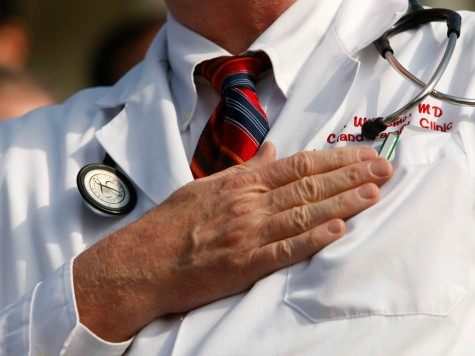“Next year, I don’t think we’ll be sending doctors to Cuba.” Atabi Ewekia, the education department training officer for the tiny Pacific Island nation of Tuvalu, confirmed that sending Tuvaluan doctors to acquire their medical educations in Cuba may have been a mistake.
In what is unraveling to become one of the greatest international embarrassments the Caribbean communist country has ever faced, Pacific Island nations that participated in medical training programs for their nationals–likely seduced by the positive reputation international leftists have crafted for Cuba’s medical industry–claim their Cuban-trained doctors struggle with even the most basic medical tasks.
Tuvalu, specifically, sent 22 medical students to train in Cuba since 2008. Ewekia told Australia’s ABC News language was a significant problem; the students learned their craft in Spanish, a language rarely heard in Tuvalu. Beyond that, however, Ewekia told the news organization that Cuban-trained doctors struggled with filling out prescriptions. Concerning “putting on the IV to patients,” he said, “they are not familiar with that.”
Tuvalu is considering implementing a program to re-train the Cuban doctors “to make these doctors safe doctors to practise in the hospitals.” To that end, some of the doctors may be sent to neighboring Kiribati, which also experienced the same woes with undertrained Cuban doctors and have established their own reeducation program–a two-year “special internship” in which doctors are trained in basic medical skills the Cuban government failed to provide them.
In 2007, Cuba used its program in Oceania to boast of the quality of its doctors, claiming an 80% drop in the infant mortality rate of Kiribati, directly attributable to its doctors. Cuba itself boasts an extremely low infant mortality rate, which many experts have attributed to the nation’s insistence on re-categorizing many deaths that would count towards that rate in nations like the United States as “abortions.”
As a result of the positive publicity from the Kiribati program, nations like Tuvalu and the Solomon Islands signed on to programs that would train their nations through the Cuban medical system. Nearly a decade later, Kiribati has had to resort to creating its own medical training program, and Tuvalu may have to depend on Kiribati to make competent doctors out of its Cuban study abroad subjects.
Cuba makes almost $8 million a year off the diplomatic work it sends its doctors to conduct. Doctors in Cuba make an average of $64 a month, a significant increase from the $25 a month they made before March 2014. The unreasonable salaries, which had led some to describe the medical industry in Cuba as a “slave trade,” has triggered high numbers of defections of refugee doctors into the United States, which leftists in America condemn as “brain drain.” It has also led The New York Times to advocate for a denial of refugee status to Cuban doctors so that they have no avenues of escape from the Cuban system.

COMMENTS
Please let us know if you're having issues with commenting.